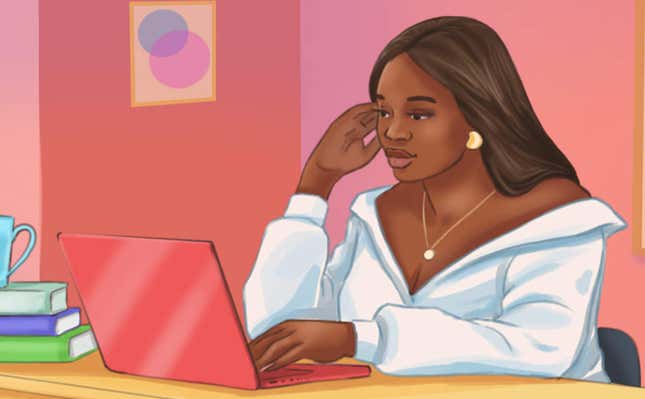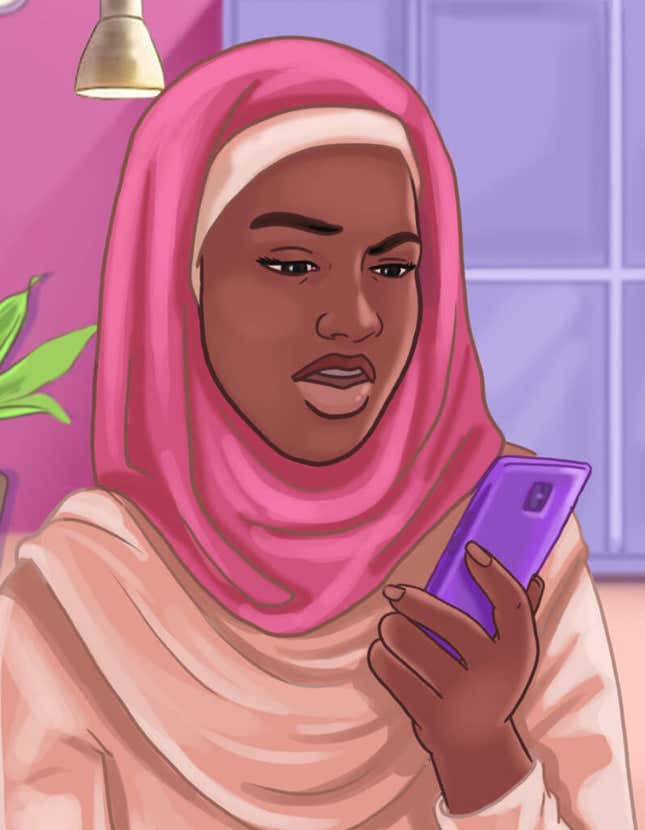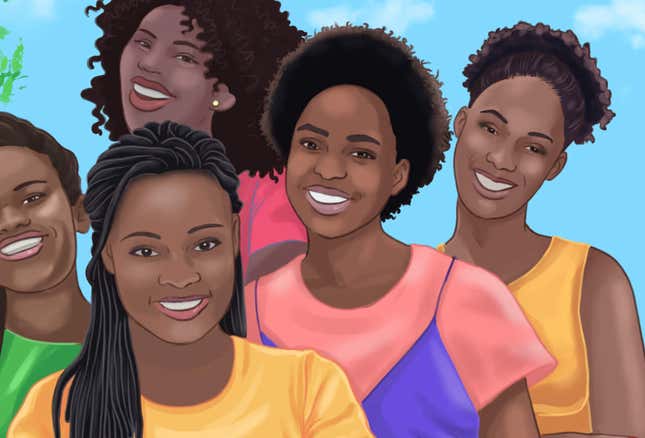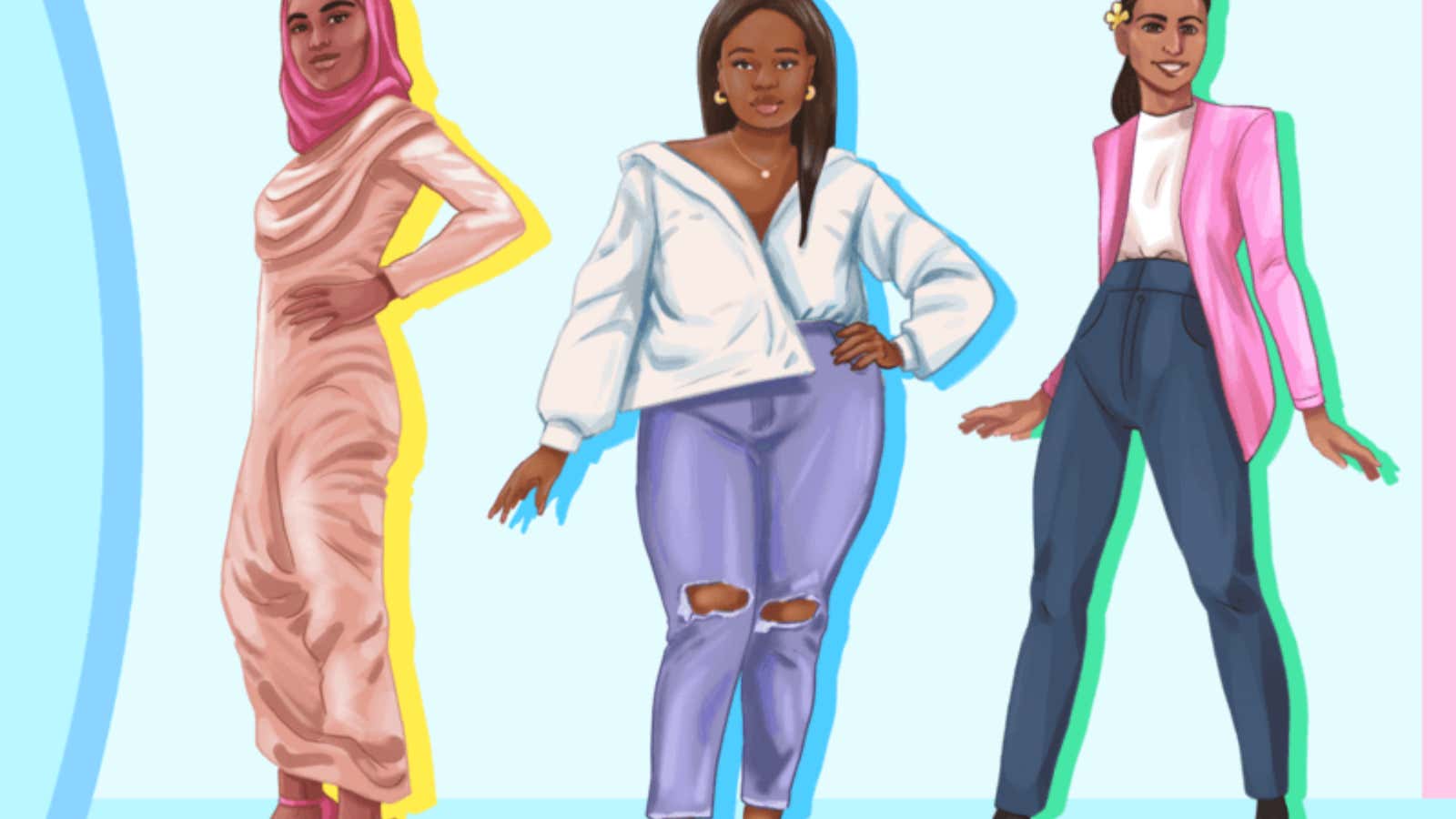Rocking a sharp fuchsia pink blazer with high cut trousers and a flower behind one ear, Goitse, a Botswanan college student living in Rwanda, is described as an “ardent feminist” who loves a “soft life.”
When she hears about a South Africa rape case trending on twitter, she ‘likes’ and retweets the post to show solidarity with the sisterhood, quoting a news story and expressing that as a woman she is always scared of losing her life to domestic violence.
A fellow user DMs her an insult and Goitse wonders what she should do next.
While the above scenario is from an online game recently unveiled by Kampala-based civic tech organization Pollicy in a bid to educate women across Africa on digital safety, those in Uganda, who claim online abuse has worsened say it could be just a normal real life day for any woman in the country.

“Due to a number of reasons such as the digital gender gap, lack of opportunities for women, patriarchy, misogyny, and cultural practices, women across Africa tend to have lower digital literacy skills which makes them more susceptible for threats such as online violence, surveillance, and stalking,” says Pollicy founder and director Neema Iyer.
“Online violence has the potential to manifest as offline, real-world violence.”
Digital safe-tea provides women with digital safety training to confront online violence scenarios
“Digital safe-tea”, which uses a “choose your own adventure” format similar to those featured in the popular 80s books, lets players take on the personas of Goitse, Aisha, and Dami, three distinctly young African women. After reading the dialogue in the interactive game, players on a phone or laptop use the back and forward arrows or click on text bubbles to progress through the plot lines, in which the women confront doxing, phishing, online dating scams, impersonation, revenge porn, “dogpiling,” a term used to describe a mob attack, and cyber stalking.
“Digital safe-tea”, which features heavy references to the cities the characters live in—including one to Nigeria’s Feminist Coalition—can be played in English, Luganda, Swahili, and French. It was created after Pollicy realized that digital safety training was mostly targeted at human rights defenders (HRDs) or journalists in Africa, despite many more online users thanks to Covid-19.
A study by Pollicy in five African countries found that 29% of their respondents did not know where to turn to for information on online safety and security. In addition, the only action that 80% of their respondents took to secure their online safety was frequently changing their passwords.
As more people move online during the pandemic, harassment of minorities increases on digital platforms
The issue of online harassment of marginalized communities, including women, is a global one. A study of US participants focused on nearly 3,000 tech workers by nonprofit Project Include found that harassment and hostility has moved into the digital sphere via bullying through email and other online activities. This is heightened during the pandemic as online interactions increase.
While Uganda has many organizations focused on online abuse against women, more interdisciplinary or intersectional research from the country using a combination of quantitative and qualitative data is needed, but many groups don’t have the tools or the capabilities to capture it, says Iyer, who has recently been appointed to Facebook’s newly launched Global Women’s Safety Advisory Board.
However a poll conducted by start-up Digital Woman Uganda in the country’s east earlier this year—to be published next month—found that even four out of five rural women had experienced some form of online violence, an under-documented area. This is despite the fact that only a small proportion of women in rural areas are online – around only a quarter of rural women.

Black, Indigenous and people of color, lesbian, gay, bisexual, transgender and queer (LGBTQ) people, sex workers, and people with disabilities face higher rates of incidence and orchestrated attacks targeting their identities, say HER Internet, a Ugandan woman-led organization that advocates for the digital rights and internet freedoms of women focusing on lesbian, bisexual and queer women and female sex workers.
Digital training is rarely included in education curriculums, Iyer points out. With cybercrime laws suppressing voices and protecting governments over people, much of the onus of creating safe digital spaces still depends on how tech companies respond to the needs of women online. But their response is often lackluster, some claim.
Social media giants struggle to protect women online
Quartz reached out to Twitter for a statement on online violence against women. In its response, Twitter reaffirms its commitment to keeping women safe online stating, “Abuse and harassment disproportionately affect women and underrepresented communities online, and has no place on our service.” They add that 65% of abusive content that’s enforced on Twitter is now surfaced proactively for human review instead of relying on reports from people using Twitter.
“Facebook plays a huge role in supporting abusers,” says Ugandan Lindsey Kukunda, executive director of Her Empire, which runs feminist programs including digital safety initiative, The Mentor’s Network.
When one Ugandan woman posted a photo of herself captioned ‘looking good’ earlier this year, Kukunda says she received hundreds of insults within minutes. Kukunda announced she would set up a page to name and shame the perpetrators, until they apologized to the victim. She approached the woman hurling the most insults at the one who had posted the photo, who Kukunda says reported her to Facebook.
Kukunda alleges that she received a message from Facebook on their policies stating, “If they received another report about me, they would take down not just my personal profile but every single one of my businesses’ [pages.]”
In a written statement to Quartz responding to criticisms raised by Ugandan women about Facebook and online safety, Cindy Southworth, Facebook’s Head of Women Safety wrote, “To keep women safe from abuse, exploitation, and harassment online and offline…We work with over 200 women’s safety organizations, and have recently launched the Women’s Safety Hub and our new Global Women’s Safety Expert Advisors, a group of 12 nonprofit leaders, activists, and academic experts, including Neema Iyer of POLLICY, who help us develop new policies, products, and programs that better support the women who use our apps, no matter where they are in the world.”
Facebook’s recent initiatives around women’s online safety seem to be a direct response to the ongoing criticism.
Female victims of online harassment are behind the movement to create safe digital spaces for women
When Ugandan digital communications expert and influencer Patience Ahumuza posted a “playful tweet” of herself in a miniskirt a year ago, it was the beginning of the #wearthatmini campaign, encouraging other Ugandan women to do the same, in a move to mark their digital space and to encourage body positivity. Hundreds of women have uploaded photos since.
“Every time you’re going to post a photo of yourself online, you go through the mental gymnastics of ‘how are people going to react? What are they going to say?’” says Ahumuza of why she started the campaign.
“I didn’t expect women to participate, let alone keep pushing it.”
In May, a Ugandan tabloid took one of her photos, altered it to make her legs bigger and published it on Facebook without her consent. The post was flooded with insults. Ahumuza, who received a death threat, says she asked the paper to take it down, but they’ve refused.
Today, “every woman has a story of online abuse” says Ahumuza, adding that one friend and one relative remain trapped in abusive relationships because their partners are threatening them with “revenge porn” if they leave.
“I will pay for the rest of my life,” says Ugandan model Judith Heard, who had her nude photos leaked online, first in 2013 and then again five years later. Today she is constantly reminded about the incidents, which she says pushed her to the brink of suicide, with her children’s schoolfriends taunting them about it.
“It changed everything. Everything,” Heard tells Quartz. She now considers herself a women’s digital rights activist and warns others about interacting with strangers in their direct messages, and about what they post.
To take matters worse, Heard was arrested when the pictures began to circulate because Uganda does not have a law protecting women against the non-consensual circulation of intimate photos, but instead has an antipornography act which can be used as a reason to litigate cases against women whose nudes are leaked. Quartz reached out to the Ugandan ICT minister for comments, but has not yet heard back.
But Iyer glimpses some hope through some online trends such as those she calls “trust circles,” where feminist groups band together online to support women being harassed.
“If someone is being attacked online a lot of Ugandans will have these trust circles where they come together and basically demolish whoever has attacked them,” she says.
“It’s very beautiful to see.”

Sign up to the Quartz Africa Weekly Brief here for news and analysis on African business, tech, and innovation in your inbox
